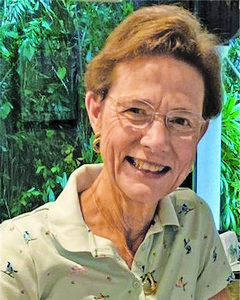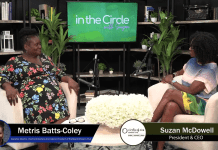|
Getting your Trinity Audio player ready...
|

As I walked on the sidewalk with my granddaughter, oncoming pedestrians moved to the other side of the street to respect the distance we have all become accustomed to. When heading up to my dentist’s office in an elevator, I take my place on the circle provided at the back of the car…lest it stop on a higher floor and someone else must enter the confined space. From leaving empty seats in a meeting room to standing six feet apart in a grocery store line, we have learned to keep our distance. We embody what it means, to be apart.
Physical distancing has been of critical value and importance to our world during the pandemic. I am grateful for the health benefits it has and continues to provide. Social distancing, however, is another story. Social distancing is not a physical separation; it is an emotional one. Social distancing is practiced anytime we create an other—someone who doesn’t look like us, think like us, believe like us, or act like us. Someone, due to their differences, is judged suspect.
Social distancing shuts down communication and the quest to find common ground. Social distancing at best avoids crossing bridges; at worst, it actively destroys them. Creating social distance happens on a global basis when we disagree as nations, and it happens in our own country when we refuse to compromise on issues of national concern. Why, we can distance ourselves right in our own homes when we allow arguments and rancor to be the mode of interaction. In other words, social distancing can happen even when we are physically nearby.
In order to reduce our social distance, we need to learn how to listen first. To listen slowly, noting what others think and why they have the opinions they do. To do so without judgment and rather with a desire simply to learn. Learn what others value, and what they hope for the future. Ask questions and seek understanding, and then, listen some more.
Through slow listening, I am convinced we discover bridges to cross and places where we share common ground—whether we are in the same room, or on separate continents. I recognize we will likely still encounter areas of disagreement, but dialogue is more apt to ensue than disagreement if we are starting from a place of mutual interest and concern.
As we respect the need for physical distance, let us not distance socially. May we value relationships and overcome difference.
Kathryn Carroll offers one-on-one coaching, listening and support for individuals facing transitions and dilemmas. She also offers workshops and retreats on a variety of life issues. Learn more by visiting www.conversationswithkatie.org or emailing her at conversationswithkatie@gmail.com





